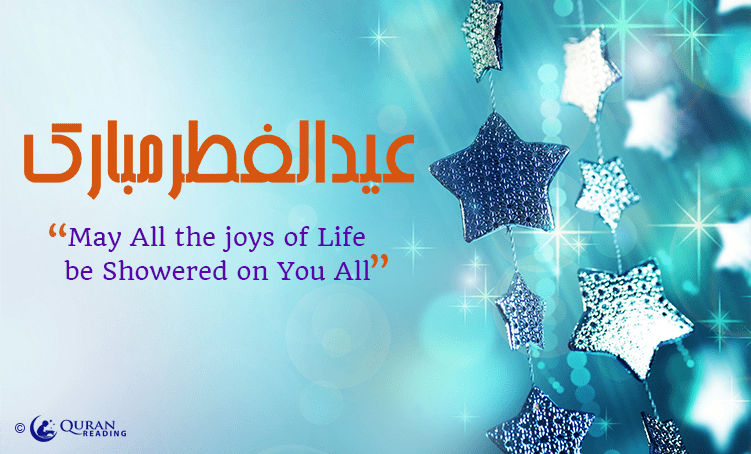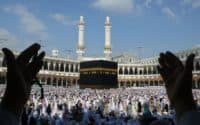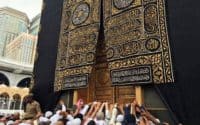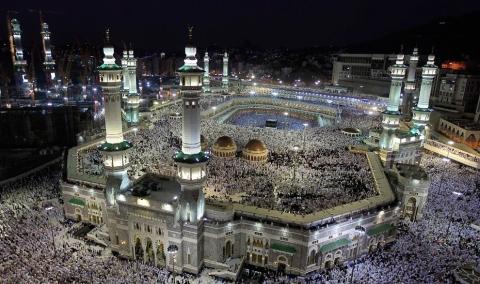
Eid-Ul-Fitr – Duties And Obligations

With the start of the month of Ramadan, where Muslims plan how they are going to spend each and every moment of this month with good deeds, prayer and worship of Allah Almighty, they also plan on how they are going to celebrate Eid-ul-Fitr that would come at the end of Ramadan.
The Eid after Ramadan is one of the most awaited events among Muslims and Muslims from across the globe make special preparations for this day, as it is a day of spreading and sharing joy and happiness. The lines below discuss the Eid-ul-Fitr as a blessing and the major duties and obligations a Muslim must undertake and perform pertinent to Eid-ul-Fitr.

The Blessing:
Besides the fact that on the day of Eid there is joy and bliss all around, the festival of Eid-ul-Fitr itself is a blessing from Allah Almighty. Therefore, the notion that Muslims celebrate this Eid as an end of Ramadan, in commemoration of someone or it is something that is fabricated by the later Muslims is wrong. Rather it has existed since the time of Prophet (PBUH) and it is a blessing of Allah which He bestowed upon Muslims. Hazrat Anas (RA) narrates about Eid in the following way:
“Holy Prophet came to Madinah, the people had two days in which they used to entertain and amuse themselves. He asked: “What are these two days?” They said: “We used to amuse ourselves and take pleasure in these two days during the Days of Ignorance (jahiliyyah). The Messenger of Allah said, “Allah has substituted for you something better than these two; the Eid of Adha (sacrifice) and the Eid of Fitr .” [Sunan Abi Dawood]
Therefore, both the festivals of Eid are actually, occasions of joy and happiness given by Allah Almighty to Muslims, hence, there is no attribution of Eid with anyone else, nor are there any connotations.
Duties And Obligations:
Although Eid-ul-Fitr is an occasion of joy and happiness, however, this joy and happiness does not come with the general connotations where celebrations are without any boundaries and abrupt. Rather, the celebrations of Eid also come with certain constraints in the form of duties and obligations. These duties and obligations come in the form of Sunnah of Prophet Muhammad (PBUH) and the things He used to do on the day of Eid. The lines below the major duties pertaining to Eid-ul-Fitr.
Offering Eid Prayer:
The first major obligation pertaining to Eid-ul-Fitr is the offering of Eid prayer. Eid being an occasion of celebration does not mean that on that day a Muslim can forget Allah and indulge in pure pleasures and marry making. Rather, praying to Allah on the day of Eid means that a Muslim understands and realizes the fact that all the joy and pleasure in his life is a blessing of Allah and He needs to be thanked for it. Hazrat Jabir bin Samurah tells about the offering of Eid prayer by Prophet Muhammad (PBUH) in the following way:
“I prayed with the Messenger of Allah the two Eid prayers more than once or twice, without an Adhan or Iqamah.” (Muslim)
Therefore, the offering of Eid prayer was a routine of Prophet Muhammad (PBUH), hence every Muslim must also try to offer this prayer and start the day of Eid-ul-Fitr with worship of Allah and by being grateful to Him.
Sadqah-tul-Fitr:
Islam is a religion that pays great emphasis on giving charity. The emphasis on charity increases even more when there is a need of making joy and happiness available from it to the less fortunate ones. The celebrations of Eid-ul-Fitr are a perfect occasion when being charitable can lead to others being happy and joyful. In this regard, Islam gives the concept of Sadqah-tul-Fitr, which is alms giving that has to be offered before the offering of Eid-ul-Fitr prayer. The right time for offering this Sadqah is between the Fajr and Eid-ul-Fitr prayer. However, the Sadaqah can also be offered during the month of Ramadan so that the less fortunate can have time to buy necessary things with which they can celebrate their Eid in a better way. Therefore, a Muslim must consider this Sadqah as an obligatory act pertaining to the celebrations of Eid-ul-Fitr and offer it before the prayer.
General Sunnahs of Eid-ul-Fitr:
For a Muslim the Sunnah of Prophet Muhammad (PBUH) is the best example and every one wishes to imitate Him as much as possible. Pertaining to Eid-ul-Fitr, besides the prayer of Eid and the Sadqah Fitr, there are other elements of Sunnah of Prophet (PBUH) specific to that day. Some general Sunnahs, which a Muslim must try to observe during Eid day, are as follows.
- The first Sunnah is of waking up early in the morning. Eid day does not mean that a Muslim is free from the obligatory prayer of Fajr, rather on the day of Eid as well a Muslim must wake up at the time of Fajr and offer the prayer.
- After the prayer one should prepare the dress and other wearable things that are to be worn when going to the Eid prayer. Therefore, the things need to be ready once a person goes for a bath.
- Taking shower on the day of Eid before wearing new clothes is a Sunnah of Prophet Muhammad (PBUH) and a Muslim must also make sure that before wearing on clean clothes he is also clean in bodily respect as well.
- If the clothes are new then well and good. If new are not available then one must wear the best clothes and on those best clothes one must apply perfume as well to ensure that one is best prepared for the prayer.
- It is also a Sunnah that before going for prayer, a Muslim eats breakfast or anything that is available in the house. The same thing is done after the prayer in case of Eid-ul-Adha.
- Offering the Eid-ul-Fitr prayer with congregation is also a Sunnah. Therefore, unless there are any dire circumstances, other than that a Muslim must offer the Eid prayer with congregation.
- Pertaining to Eid-ul-fitr another Sunnah of Prophet (PBUH) was that He would go to the mosque from one way and come back home from the other way so that He could meet and greet as much people as possible on the day of Eid.
Conclusion:
In a nutshell, Eid-ul-Fitr requires no introduction and it undoubtedly is an occasion specific to happiness and joy all around. However, in celebrations a Muslim must not forget that these celebrations need to be thanked and in celebrations one also needs to make the less fortunate a part of it so that they could also celebrate Eid and the spirit of this blessing is revived.




